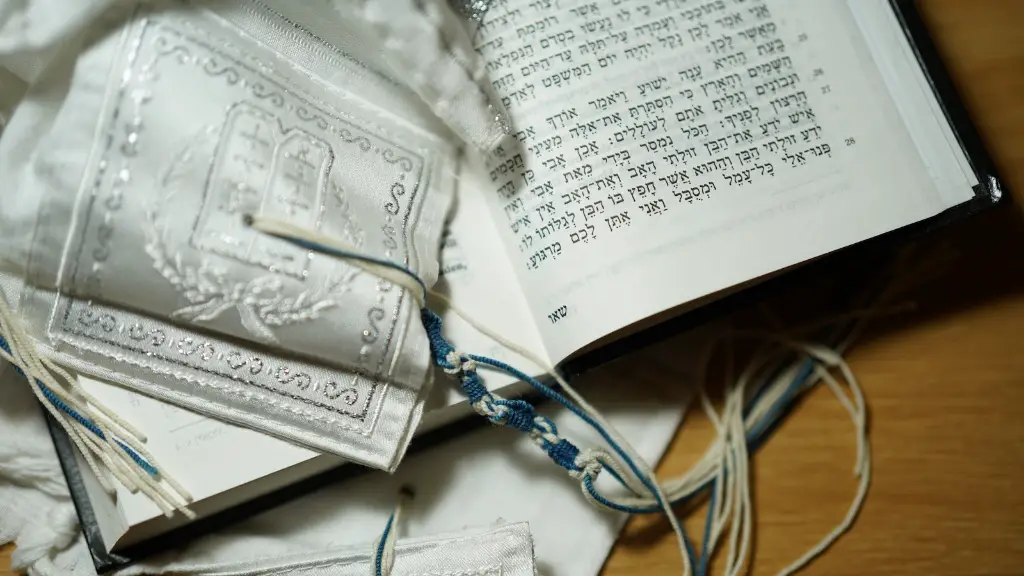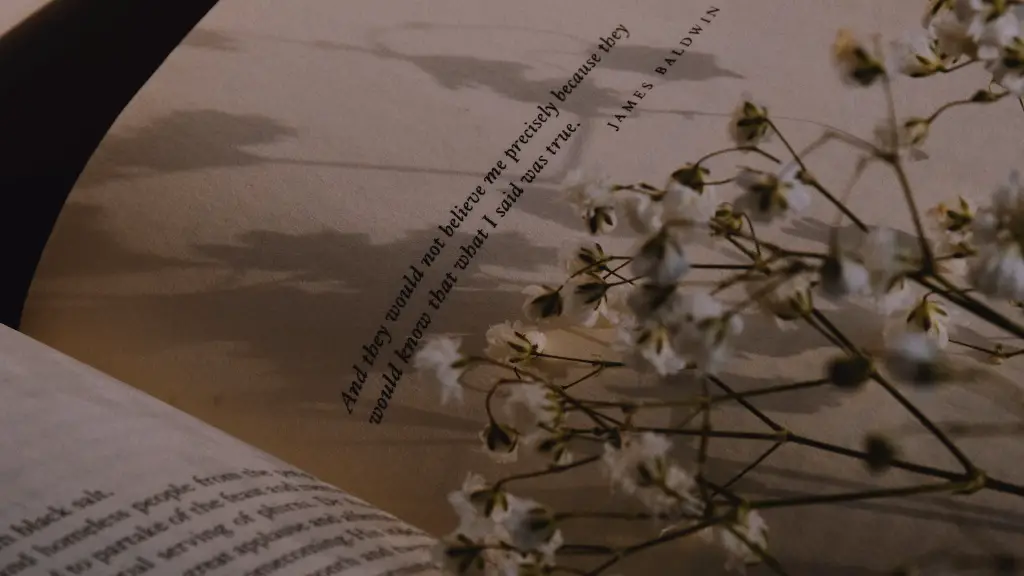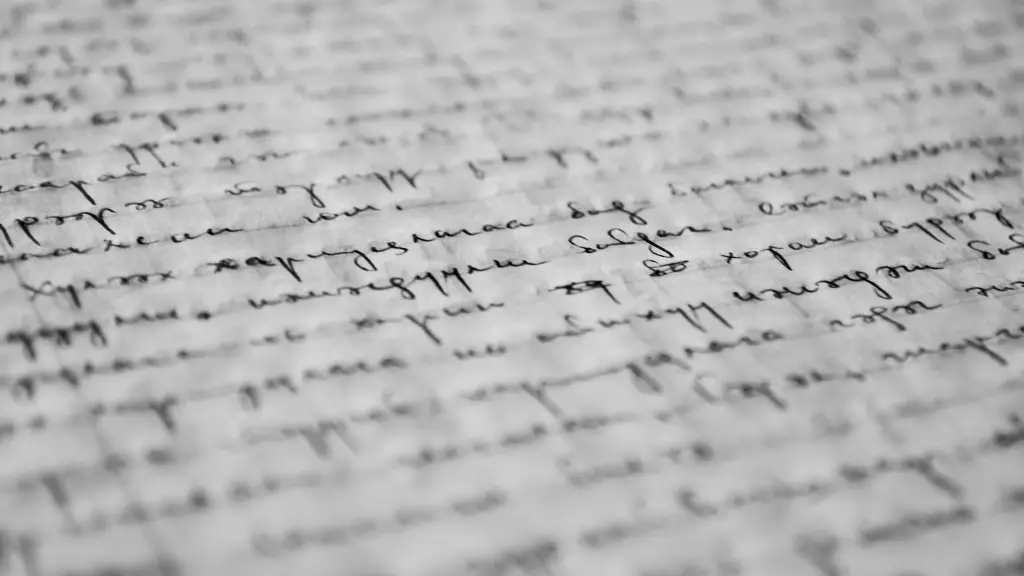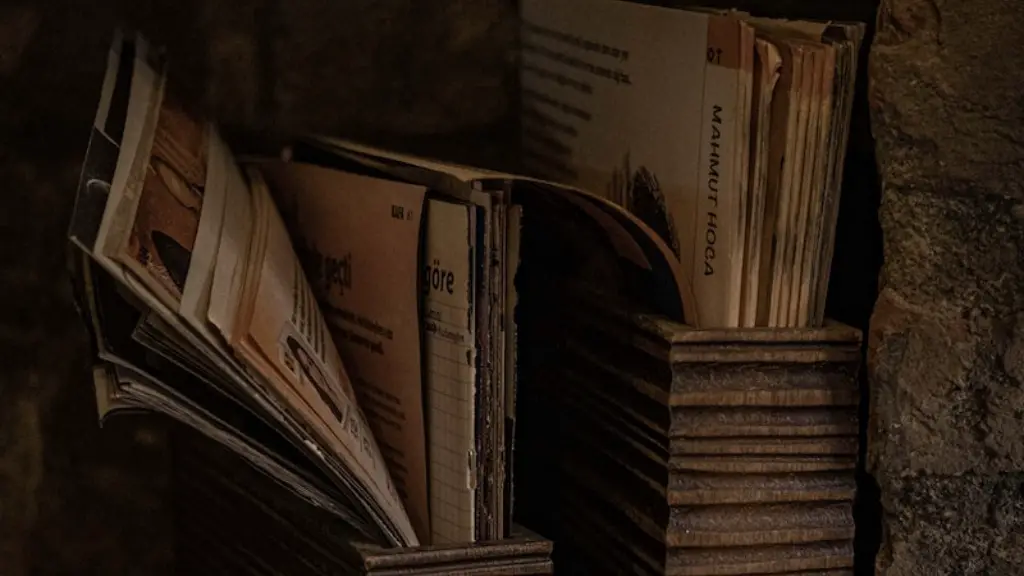African poetry is a form of expression that has been around for centuries, it began as an oral tradition and continues to be used as a means of storytelling and sharing experiences.
The African poetic consciousness has diverse depths and can be heard in many languages, cultures, and disciplines. It is written in the African traditional languages such as Kikuyu and Xhosa, as well as those of the diaspora such as the Jamaican Patois and many others. It is defined by its unique exploration of different topics and themes, especially drawing from life experiences, injustice and self-expression.
African poetry often requires the reader to look much deeper than its surface level. It contains layers of powerful messages and is often a commentary on the harsh realities of life. It offers an avenue for protest as well as a source of comfort and hope for future generations.
In its basic form, it is rhythmic, witty and often surprising. It is not constrained by stylistic or structural limitations, which allows for accessibility and participation by diverse groups. These open forms allow poets to express and share their ideas freely, without the need for a particular grammar or structure.
African poetry has the power to transform a situation and express truths that are sometimes unpleasant or difficult to accept. Its power to inspire is undeniable – it can move people to action, provoke thought and change opinions. Its use of imagery and symbolism adds to its effectiveness in conveying messages and emotions. It also has the capacity to capture the spirit and culture of Africa in a way that is both direct and meaningful.
Many African poets have been pioneers in the field, pushing the boundaries of creativity and inspiring their readers with their boldness and insight. Notable figures include the Senegalese poet Leopold Sedar Senghor, who was an early exponent of the Negritude movement, and the South African poet and political activist Amanda Gcina Mhlope. Their influence continues to inspire new generations of African poets, who continue to explore and experiment with new ways of expressing African experiences.
African poetry is an art form that has much to offer, both in terms of its expressive power and its potential to inspire and move. As a form of expression, it often reveals truths and brings messages of hope and change to people who may be disempowered or struggling in other areas of their lives.
Education
Educational institutions are increasingly recognizing the value of African poetry and literature in discussing African stories and perspectives. Poetry is becoming more prevalent in classrooms as students and teachers use it to explore topics such as gender, race, politics, culture, and history. By using African poetry as a tool, classrooms are given an opportunity to engage with the African narrative and to explore themes in a creative and meaningful way.
The use of African poetry in the classroom also provides an opportunity for teachers to introduce culturally relevant material to their curriculum. This enables them to develop a more complex understanding of the African story and to deepen their students’ understanding of the scope and richness that exists in African literary tradition.
African poetry is also often used in informal educational settings to discuss issues such as health, women’s rights, and community development. This provides an alternative platform for exploring certain topics and enables a more creative approach that encourages participation and dialogue.
The Digital Age
In the digital age, African poetry is taking new forms, with poets now able to share their work with a global audience. Social media platforms such as Twitter, Instagram, and YouTube make it easier to connect with a wider audience and to share African stories and perspectives.
Digital platforms also provide opportunities for collaboration, allowing poets to join forces, create works together, and reach a larger audience. This can be seen in the rapid rise of spoken word poetry, which has energized African poetry online and provided an opportunity for poets to explore different perspectives and broaden their reach.
The digital age has also enabled African poets to access resources and share their work more easily. In an increasingly connected world, African poetry can more readily travel and be appreciated around the world.
Contemporary Issues
African poetry continues to deal with contemporary issues and explore the current dilemmas that face African society. Poets draw from their own experiences and observations to create works that offer insight into the African story and explore the complexities that exist within the African context. This allows them to express criticisms and provide solutions that resonate with the African public.
The power of African poetry lies in its ability to capture the emotions and experiences of African people in words. It offers a voice to those who feel unheard, and a tool to advocate for change. By discussing topics such as poverty, inequality and corruption, it can raise awareness and provide a platform for discussion.
In a society where many still feel oppressed and unheard, African poetry gives those who suffer a platform to express themselves and to demonstrate the strength and resilience of the African people.
Conferences and Festivals
Nowadays, African poetry has greater visibility due to international conferences and festivals. These events provide opportunities for poets to collaborate and to share their work with a wider audience. These platforms also allow African poets to connect with a global audience, raising the profile of African poetry, and allowing it to reach people who may not be familiar with it.
These public events provide a safe space for African poets to explore new ideas and to debate issues that affect their communities. By giving African poets a platform to speak their truth and to express their thoughts, these events draw attention to contemporary issues, and can provide a spark for social and political change.
The visibility that African poetry is receiving is invaluable, as it provides a tool to express the African reality and to be seen and heard on the global stage.
The Future of African Poetry
African poetry is only beginning to receive the recognition it deserves. African poets are creating new language, crafting stories and exploring the African experience in fresh, innovative ways.
African poetry continues to evolve and to respond to new challenges and trends. As African poets continue to break new ground, they are bringing a new narrative to the world and making African stories audible. The future of African poetry is an exciting one, as it can provide new ways of seeing and understanding the African reality.





